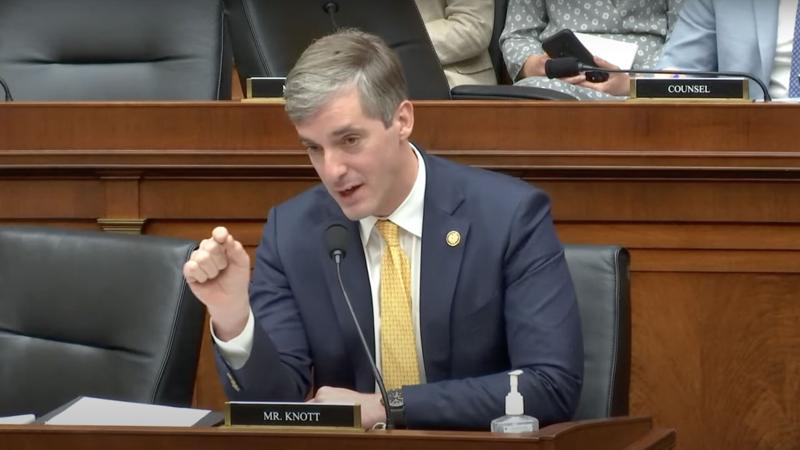The more that a former federal prosecutor from North Carolina and survivor of a 14-candidate Super Tuesday primary pressed, the more that a 34-year lawmen from Baltimore evaded a direct answer.
Neill Franklin, retired major from the Maryland State Police and the Baltimore Police Department, offered a difference in “detainer” and “warrant” when pressed by freshman Republican U.S. Rep. Brad Knott. Pressed on safety of the community, and the first step standard of entering the country illegally being a crime, Franklin dodged and never agreed during Wednesday morning’s hearing of the Immigration Integrity, Security and Enforcement Subcommittee from the Committee on the Judiciary.
Franklin also chose to differentiate meaning of legal policy and federal authority that comes with issuance of detainers by federal enforcement agencies. He said local police don’t have authority to enforce federal law, a point the U.S. Supreme Court rejects in a January 2024 decision.
Knott, having once declined to yield his time as it ended, finally did saying the point to make was evident.
“Cut to the chase, you don’t honor a detainer,” Knott said. “You have someone in your custody who is illegal. You are notified by federal law enforcement that they are here illegally, the detainer says please hold, sanctuary policy does not honor the detainer. Correct?”
A pregnant pause later, Franklin said, “Correct, if it is a warrant, we can hold.”
“Exactly,” Knott said. “Exactly. So you have people who have been arrested at the local level. There’s a federal instruction to hold them, an illegal immigrant criminal, and you prioritize releasing them rather than working with federal law enforcement, and it’s your opinion that that serves your local community. Correct?”
“They paid their debt,” Franklin said and was cut off immediately.
“Releasing someone who is here illegally,” Knott said, “who has already been arrested. It’s your testimony that releasing an arrested illegal immigrant criminal effectuates a safer policy for your community.”
Franklin said, “When they are released by an order of the court, at a specific date and time …,” and his sentence never finished as Knott told him he was evasive.
“Someone has been arrested in your town,” Knott said again, “who is here illegally. And you want them to be released rather than to work with federal law enforcement. And it’s your testimony that that makes your community safer.”
“We work according to the law,” Franklin said.
Knott responded, “You think being here illegally is consistent with the law?”
With another pause and stammer, the veteran lawman said, “With the federal law?”
Franklin then said Knott was talking about a civil process.
“They are not brought into your jail by a civil action,” Knott said.
“Local police do not have the authority to enforce that federal law,” Franklin said.
“They have the authority to hold someone when a federal detainer is issued,” said Knott, having issued them himself. “When you are issued a hold, it is a sanctuary policy to let them go. Correct?”
“Sanctuary policy,” Franklin said. “I’m talking about what I know to be a legal policy.”
Knott finally yielded to the chairman and said the point was evident.
Knott’s resilience was evident in winning his seat last year. He finished second, nearly 9% behind, in the 14-candidate primary to quality for a runoff that never happened once President Donald Trump gave his endorsement, and Kelly Daughtry suspended her campaign. Knott beat Democrat Frank Pierce by more than 17% in the general election.
Others testifying included Chicago resident Danielle Carter-Walters; Sheriff Dale Wagner, of Adams County in Washington; and R.J. Hauman, president of the National Immigration Center for Enforcement.
Hauman testified sanctuary policies were “far beyond” simply complying with detainer requests. He noted a New Jersey mayor refusing to allow usage of a detention facility and said there’s no interest in detainment.
Given a chance to explain the logic for that, Hauman said, “It’s all by design. They want to make each jurisdiction a flagrant abuse, with a middle finger to the White House when it comes to enforcing our law.”







